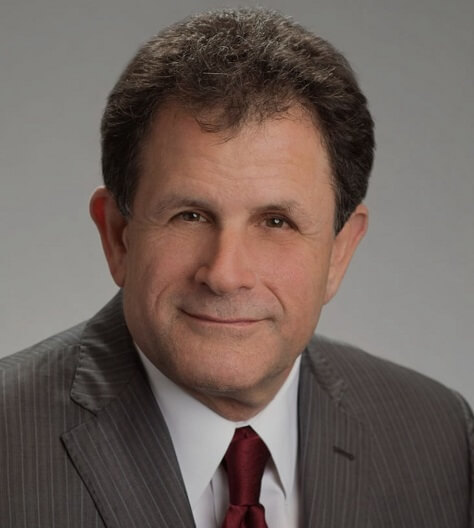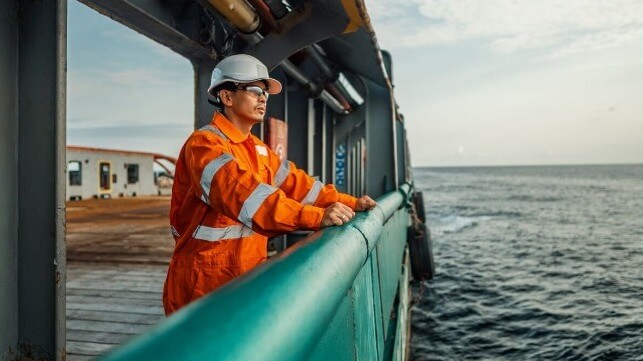Mental health issues among seafarers have always been a concern, but COVID-19 has heightened these issues and brought them into the spotlight. While at sea during the COVID-19 pandemic, crew members may be concerned about their families at home (particularly if they are from countries with high rates of COVID-19) or longer contract periods (temporary). (up to 400,000 seafarers on sea for more than eight months) faced additional stressors, including multiple stressors. Contract extensions, return travel restrictions, inability to attend funerals for deceased relatives, bans or significant restrictions on shore leave, and financial stressors. These are in addition to the daily stressors that all crew members potentially experience, such as strained relationships in confined spaces due to long-term contracts, threats of violence, sleep disturbances, boredom, and low job satisfaction. I did. Staying in the same job for long periods of time, especially in high-risk positions, and lack of communication with friends and family back home.
Crew members often feel cut off from their support systems, and isolation is a key contributing factor to mental health issues. Some crew members may not be able to ask for help due to cultural or language barriers. Furthermore, certain cultures have very high thresholds for help-seeking behavior, which can create barriers to early detection and increase suicide risk. Studies have shown that up to 20% of crew members have considered suicide.
Issues of high stress, isolation and cultural differences in response to mental health issues need to be proactively managed at ship and company level through proactive program development and interventions. Police officers, as well as crew members, may be seriously affected, limiting support possibilities and requiring shared solutions on board and on shore.
In addition to direct signs of suicide and mental health problems, crew members become more prone to mistakes and accidents that can put the ship, themselves, and other crew members at risk.
A very important consideration is that underlying mental health issues such as depression, anxiety, and substance abuse are exacerbated by conditions at sea. You need to examine and consider your motivation for visiting. If you're trying to escape from family problems, it's rarely effective. Isolation from normal social support systems can reveal underlying mental illness. It is not uncommon for newly hired crew members to show the first symptoms of schizophrenia when away from home for the first time during the first few months of their first contract. To provide effective support to seafarers, it is important to understand and manage culturally specific mental health issues.
Mental health screening must be part of all PEME and REME programs.
AP Companies offers comprehensive PEME services and strongly advocates for the inclusion of a mental health assessment in the required PEME/REME package. Prioritizing mental health assessments not only promotes crew health, but also reduces potential financial and security risks, ultimately leading to cost savings.
The influence of other medical conditions must be considered. The effects of medications used to treat underlying medical problems, lack of access to appropriate medical care, and lack of access to chronic medications can all impact mental health.
Experiencing and transmitting psychological stress as somatic symptoms, known as somatization, is a common phenomenon among crew members and often leads to physical symptoms that call for medical attention, i.e. mental symptoms that cause physical symptoms. lead to disease. Complaints of chest pain, headaches, back pain, insomnia, weakness, and tremors are the leading causes for returning crew members to seek treatment, and somatization often leads to complex case management. It's causing challenges. Physical complaints should be fully medically evaluated before concluding that they are secondary to psychological problems and addressing those problems.
Utilization of medical resources is a secondary measure that can generate a legitimate ROI for mental health services.
COVID-19 has also brought new emotional and behavioral concerns to seafarers, with feelings of isolation, loneliness and stigma becoming more prevalent. And even if you recover from the virus, you may be at increased risk for other conditions, collectively known as “long coronavirus,” including depression, anxiety, PTSD, cognitive problems, and substance abuse. These post-infection complaints must be taken seriously.
To address these mental health issues, assistance must be provided to seafarers both onboard and through various support programs. Designated mental health personnel, additional training for captains and crew, and culturally sensitive support programs should be implemented to provide the necessary support. Video, in-person interventions over the phone or online, and mandatory YouTube videos are all strategies that can be implemented. Organizations such as ISWAN (International Seafarers Welfare Assistance Network) also offer specific training programs and resources aimed at improving social interactions, connections, and mental health support. To increase positive social interactions and connections among crew members, strengthen their ability to communicate with friends and family at home, and develop a robust crew health program that addresses sleep hygiene, exercise, hydration, and diet. to reduce mental health issues and ensure good health for all crew members. Pharmaceutical availability must be part of a company's strategy.
AP Companies' telehealth services include access to psychologists and psychiatrists for both crew and officers. This provision will ensure that crew continue to receive the support they need in their native language, while also providing guidance to captains to identify mental health issues within their crew and effectively manage them on board. You will be able to do this.
Accessing mental health support through a medical case management support company like AP Companies is a valuable and much-needed resource.
In conclusion, the mental health issues faced by seafarers are complex and widespread and require active intervention and support from ship and company leaders. Seafarers’ health can be better protected by addressing stressors, isolation, underlying mental health issues, somatization, and emotional concerns related to COVID-19. It is important to prioritize mental health awareness and support to ensure the safety and mental health of seafarers during this difficult time.
 Dr. Arthur L. Diskin is a graduate of the University of Miami School of Medicine with specialty training in emergency medicine and an interest in critical care medicine. He is board certified by the American Board of Emergency Medicine and a Fellow of the American College of Emergency Physicians. He has held leadership roles including past president of the Florida College of Emergency Medicine and former chair of the emergency department at Jackson Memorial Hospital in Miami, Florida and Mount Sinai Medical Center in Miami Beach, Florida.
Dr. Arthur L. Diskin is a graduate of the University of Miami School of Medicine with specialty training in emergency medicine and an interest in critical care medicine. He is board certified by the American Board of Emergency Medicine and a Fellow of the American College of Emergency Physicians. He has held leadership roles including past president of the Florida College of Emergency Medicine and former chair of the emergency department at Jackson Memorial Hospital in Miami, Florida and Mount Sinai Medical Center in Miami Beach, Florida.
Dr. Diskin also serves as an examiner for the American Board of Emergency Medicine and is past president of the Cruise Ship and Maritime Medicine Section of the American College of Emergency Physicians.
His medical experience includes a distinguished tenure as Vice President and Global Chief Medical Officer of Royal Caribbean Cruise Lines from 2008 to 2016. In this role, Dr. Diskin plays a central role in recruiting and supervising the ship's doctors and nurses, designing and operating the medical center, developing infectious disease and disaster management policies, and ensuring the highest standards of medical care for guests and crew. I accomplished it.
Previously, he served as Medical Director for Carnival Cruise Lines from 1990 to 2008. During that time, he honed his maritime medical expertise and further cemented his reputation in the field.
Dr. Diskin is also known for his consulting services in the maritime industry, providing case management, risk assessment, and outbreak analysis. He has expanded his knowledge into risk management and claims management in both the field of coastal medicine, particularly emergency medicine, and the maritime sector.
The opinions expressed here are those of the author and not necessarily those of The Maritime Executive.


